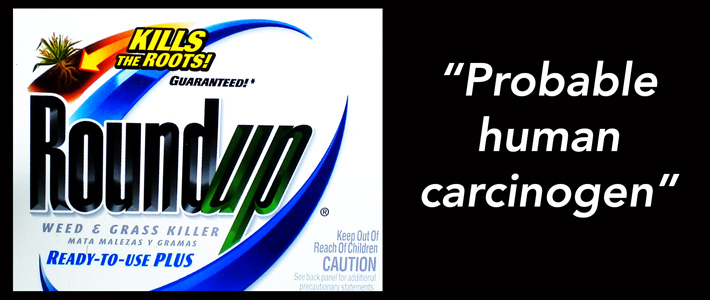
IARC’s verdict comes as glyphosate is set to be re-approved in Europe this year
The World Health Organisation’s cancer agency has declared the world’s most widely used weedkiller a “probable human carcinogen” in a move that will alarm the agrochemical industry and amateur gardeners.
The assessment by the International Agency for Research on Cancer (IARC) of glyphosate, which is used in herbicides with estimated annual sales of $6bn, will be of special concern to Monsanto, the company that brought glyphosate to market under the trade name Roundup in the 1970s.
Over 80% of GM crops worldwide are engineered to be grown with the herbicide.
The IARC has no regulatory role and its decisions do not automatically lead to bans or restrictions, but campaigners are expected to use them to put pressure on regulators.
The IARC reached its decision based on the view of 17 experts from 11 countries, who met in Lyon, France, to assess the carcinogenicity of 5 organophosphate pesticides.
The IARC’s assessment of the 5 pesticides is published in the latest issue of The Lancet Oncology.
Europe is set to re-approve glyphosate this year.
The IARC assessment is here (register to gain free access):
http://www.thelancet.com/journals/lanonc/article/PIIS1470-2045%2815%2970134-8/abstract
Financial Times article behind paywall: http://www.ft.com/cms/s/0/8b79a572-cf14-11e4-893d-00144feab7de.html#axzz3UxYNKYO6
The response by the pesticide industry association, the Glyphosate Task Force, is here:
http://www.wmcactionnews5.com/story/28574811/statement-of-the-gtf-on-the-recent-iarc-decision-concerning-glyphosate










